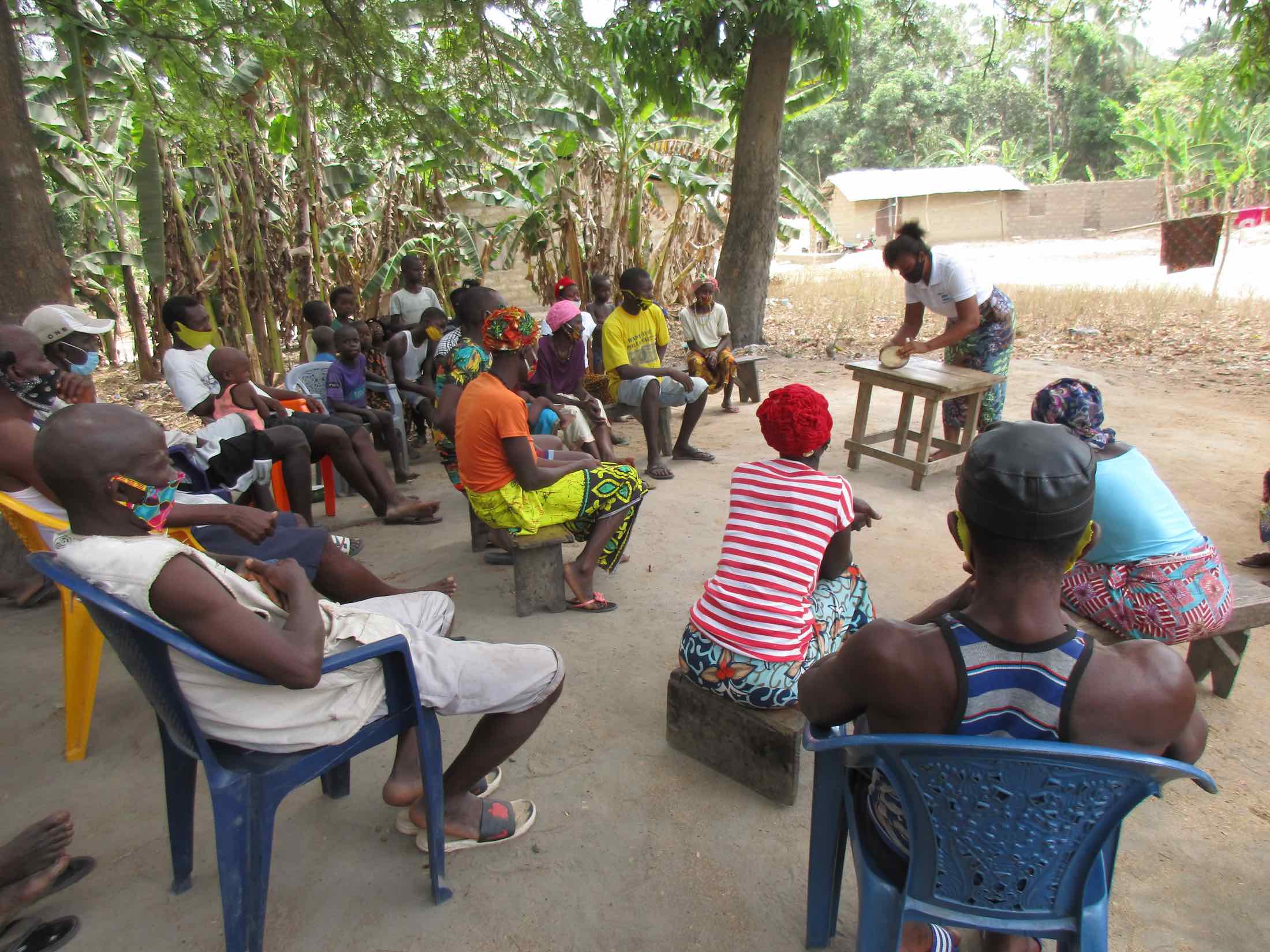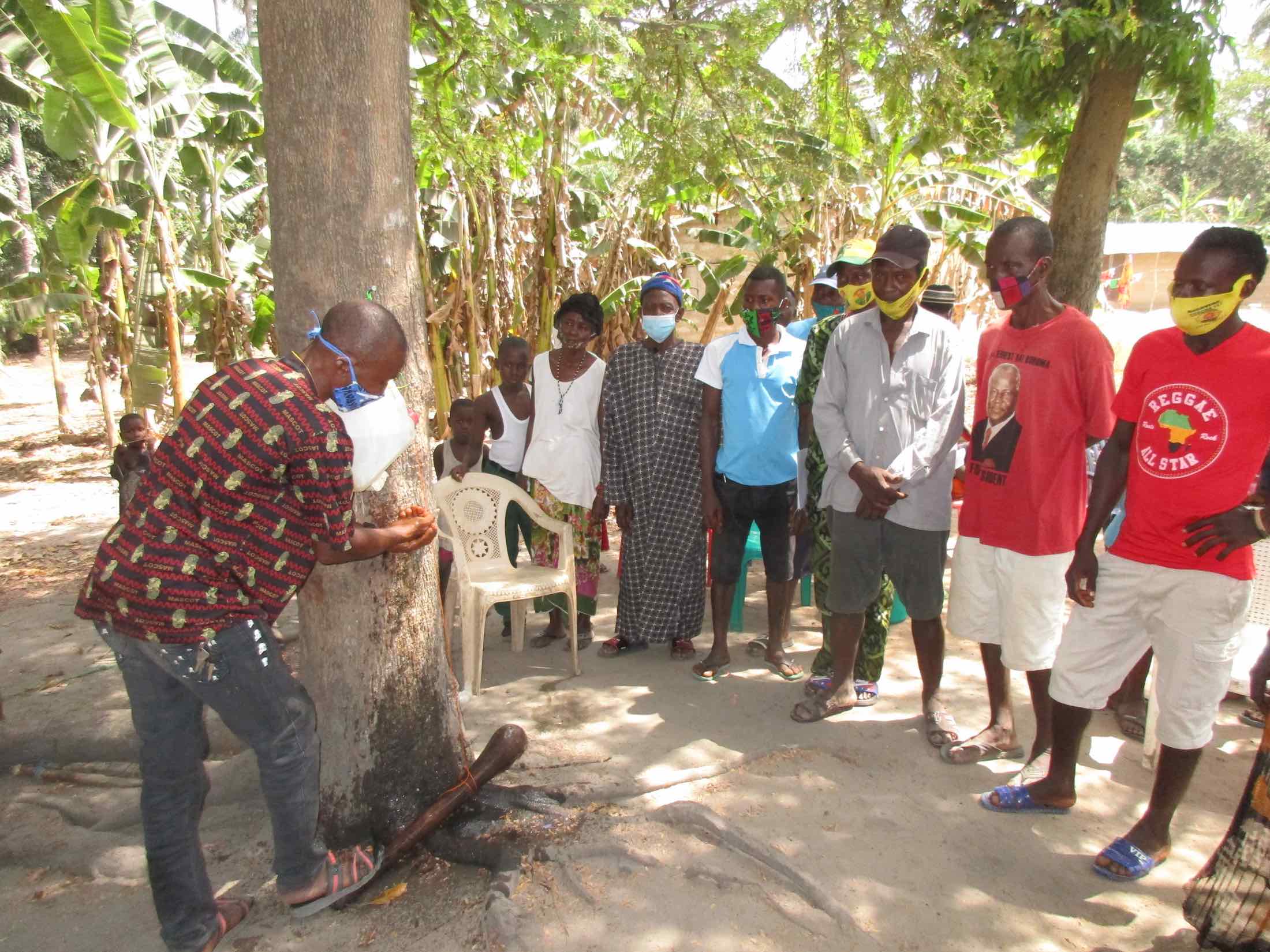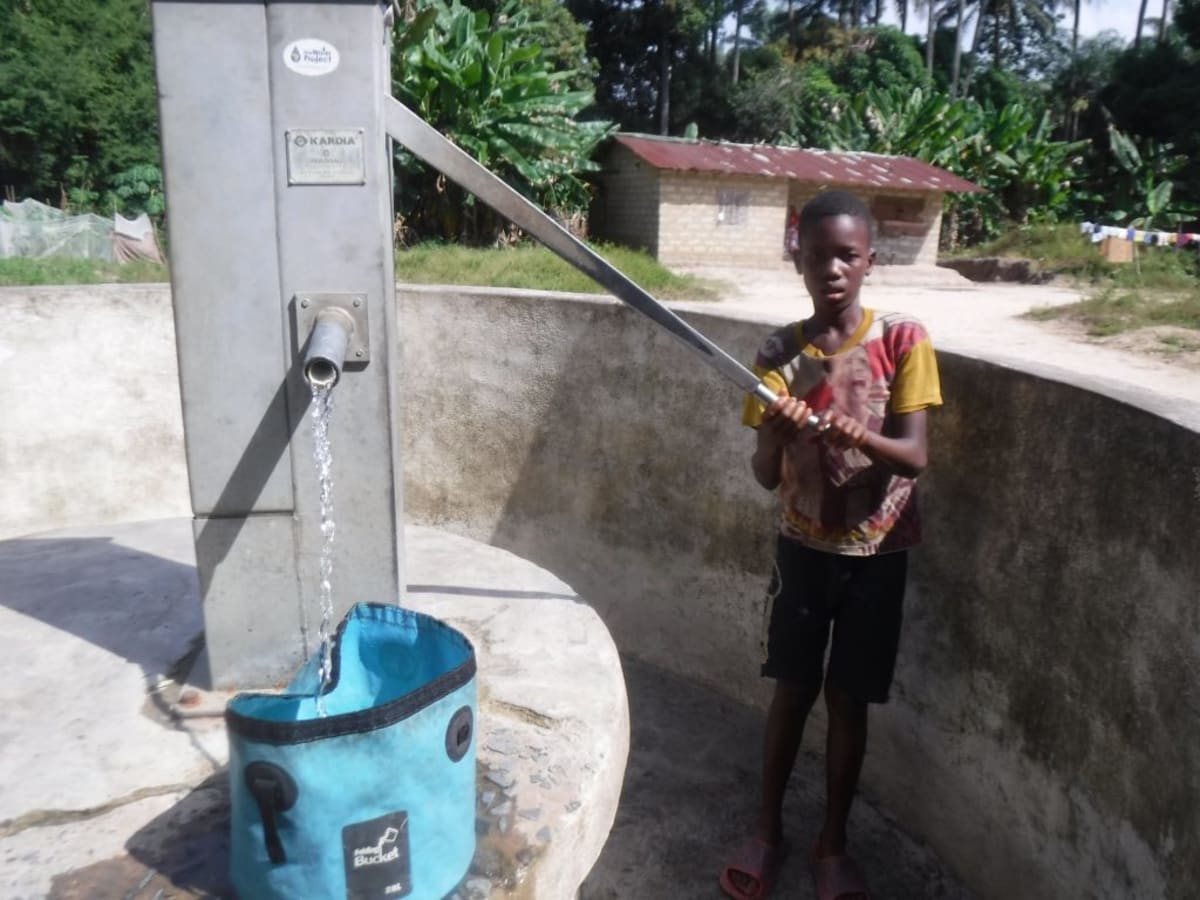The primary water source for the 327 people in Bofi Village is located at the village entrance, making it also accessible to the village school and community members. Unfortunately, the well does not provide enough water for the entire population, causing significant community constraints. The months of March to May are when the well is completely dry, and the community and the school rely on a hole dug in the ground for their source of water.
"Water is life, and It is the best thing that as the headman of the village, I can provide for my family. For over five years, we have started to see the effects of climate change and water quality and quantity. I have asked for help from several people, including the Councilor, and no answer," said Alimamy Conteh.
Three months out of the year is a long time to be without adequate and clean water. People who are not fortunate to afford to buy containers have to settle for drinking water from the scoop hole. The first sign of low water recharge will suddenly start the frenzy of people stockpiling and will immediately erupt into arguments and fights. Seasonal water well never provides sufficient water to the entire community. Furthermore, whenever a water point is seasonal, there is bound to be contamination. The community mentioned that when the water table is low, the water's color changes and brings out a lot of mud.
The community is located approximately 2 miles from the main road leading to the center of business. Upon entering the village, there are bushels of rice scattered on the road to dry. The women and children are responsible for the process of preparing the rice to be cleaned by hand. Walking down the road, we passed men and young boys on the way coming from the woods with a machete in one hand and some fruit in the other.
The most common livelihood is farming. Produce such as pepper, cucumbers, garden eggs, rice, potatoes, and cassava are a few of the items planted throughout the year.
Here’s what we’re going to do about it:
Well Rehabilitation
The well marked for this overhaul is dry for a few months every year and needs major work to supply adequate, clean water to the community year-round. The pump will be removed, and a hand auger will be lowered inside and powered by a drill team. This hand auger will allow the team to drill several meters deeper to hit a sufficient water column to ensure the well supplies water throughout all seasons.
As the team drills, the casing will be installed, transforming the bottom of this hand-dug well into a borehole. PVC piping will connect this lower system directly to the pump, a construction that we know will also improve the quality of water.
Once this plan is implemented, everyone within the community will have access to safe drinking water quality and quantity, even through the dry months.
Hygiene and Sanitation Training
There will be hygiene and sanitation training sessions offered for three days in a row.
After our visit, the hygiene and sanitation trainer decided it would be best to teach community members how to build a tippy tap (a handwashing station built with a jerrycan, string, and sticks). They will use these tippy taps for handwashing demonstrations and will also teach about other tools like dish racks and the importance of properly penning in animals.
This training will also strengthen the water user committee that manages and maintains this well. They enforce proper behavior and report to us whenever they need our help solving a serious problem, like a pump breakdown.

 Borehole Well and Hand Pump
Borehole Well and Hand Pump































